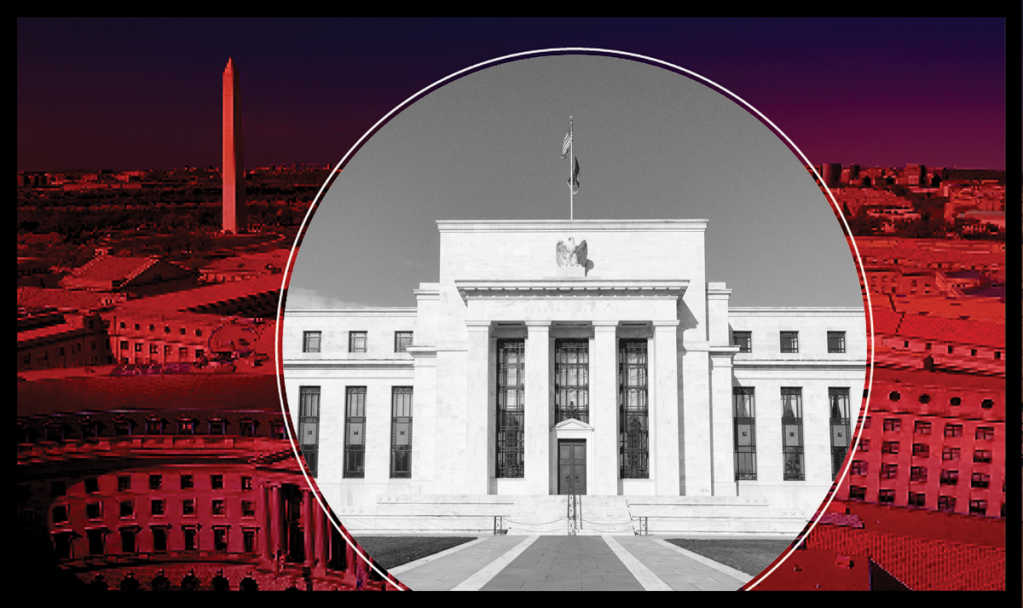The Federal Reserve (Fed) raised its key federal funds rate for the 10th consecutive time, announcing a 0.25% rate hike Wednesday to 5% to 5.25%, a level they have not reached since 2007.
The hike completes the fastest series of rate increases since the 1980s, as the central bank works to cool the economy and greatly reduce the pace of inflation, which also reached highs not seen in decades.
The 25 bps hike was widely expected by Wall Street, as the macroeconomic policy crafters have yet to break the labor market and inflation levels are still considered elevated at 5%, far above the 2% target.
But a series of bank failures over the last two months — including First Republic Bank this week — and several months of data that suggest its monetary policy tightening has worked, have spurred concerns that the economy is headed toward a recession and the Fed will pause rate hikes after the May meeting.
In cutting some language about inflation targets, the Fed gave hints on Wednesday that it might be done hiking rates. But Federal Reserve Chair Jerome Powell said in a press conference that no decision has been made and the Federal Open Markets Committee (FOMC) is closely monitoring economic data.
It represents a shift or sorts. For months, the central bank said it needed to make additional changes before it took its foot off the gas.
In fact, traders on Wednesday were placing bets that the Fed will be forced to cut rates at least twice before the year closes as economic growth falters.
The Fed says its current forecast doesn’t project rate cuts, and the Fed itself hasn’t ruled out raising rates again if inflation doesn’t tamp down.
“The U.S. banking system is sound and resilient,” the FOMC said in a statement Wednesday. “Tighter credit conditions for households and businesses are likely to weigh on economic activity, hiring, and inflation. The extent of these effects remains uncertain. The Committee remains highly attentive to inflation risks.”
The FOMC noted that it was still targeting a 2% inflation rate, and in doing so, will “take into account the cumulative tightening of monetary policy, the lags with which monetary policy affects economic activity and inflation, and economic and financial developments.”
The Fed reiterated that it would continue to reduce its holdings of Treasury securities, agency debt and agency-backed mortgage-backed securities. “The Committee is strongly committed to returning inflation to its 2% objective.”
Investors have been “expecting the May hike, and the Fed does not want to do anything to create more uncertainty in the markets,” said Lisa Sturtevant, the chief economist for BrightMLS. “But the shakiness in the banking sector has made it more likely that the Fed will pause future rate increases. Even with that pullback, it is far from clear that we have seen the end of interest rate increases this year. Turbulence in the banking industry has grabbed the headlines in recent weeks, but inflation still remains persistently high.”
Ahead of the Fed meeting, mortgage applications picked up this week as rates dropped slightly. On Wednesday afternoon, mortgage rates for 30-year fixed-rate mortgages were at 6.43%, according to HousingWire’s Mortgage Rates Center.
The traditional spring home buying season is showing some signs of picking up, but it remains well below historical averages. Existing home sales in particular have been paltry in 2023, largely due to low levels of inventory. Single-family inventory for the week ending April 28 jumped to 422,270, up from 414,010 the week prior, offering real estate agents and mortgage loan officers hope that the ice is melting.
There are still too many variables to know whether rates will drop or settle into the mid-6% range that they’ve been in for weeks. The debate in Congress over the debt ceiling could send borrowing costs soaring, but a clear indication from the Fed that hikes are ending could lower mortgage rates.
Lawrence Yun, the chief economist for the National Association of Realtors, condemned the May rate hike.
“The latest interest rate hike by the Federal Reserve is unnecessary and harmful. Consumer price inflation has been decelerating and will continue this trend,” he said in a statement. “After the awful 9% consumer price inflation in the summer of last year, the latest data shows 5% inflation. It will be even lower as the heavyweight component to inflation, which is housing rent, will inevitably slow down given the 40-year high robust construction of new empty apartment units. In addition, there is significant additional monetary policy tightening already occurring.”







